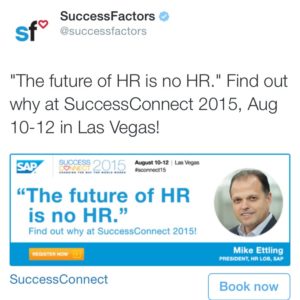
 Do you have an iPhone 5 or 5s? You’re probably like one of my friends who thinks your phone is slow, or your photos look blurry compared to what you see on Facebook and Instagram. And maybe you’re now waiting for the new iPhone 6s so you can upgrade to a better device—and a better life—and be happier and sexier and more fun.
Do you have an iPhone 5 or 5s? You’re probably like one of my friends who thinks your phone is slow, or your photos look blurry compared to what you see on Facebook and Instagram. And maybe you’re now waiting for the new iPhone 6s so you can upgrade to a better device—and a better life—and be happier and sexier and more fun.
(Whatever. Good luck with that.)
Some people think that our devices (including phones, cars, televisions and even microwaves) are planned to fall apart. That’s part of a theory called planned obsolescence.
Apple doesn’t make money if your phone lasts forever. Whirlpool loses market share if your washing machine never fails.
Obsolescence doesn’t have to be deliberate, though. Sometimes it no longer makes sense to produce or upgrade software and devices. Your old Jitterbug phone is a paperweight. My iPad2 is a brick. Technology evolves, and specific pieces of hardware and software just can’t keep up.
There are many examples of planned obsolescence in our human resources community. When I started in HR, there were payroll ladies who ran the payroll in notebooks and on typewriters. Someone saw an opportunity. Now our new “payroll ladies” are air traffic controllers who oversee the logistics of payroll.
But some of the obsolescence in HR feels treacherous. There are companies out there who will convince you to outsource your recruiting function and then fail to fill your positions in a timely fashion. They defend themselves by blaming the war for talent while simultaneously telling you that your former internal recruiters were lazy and couldn’t do their jobs.
That feels a little like planned obsolescence to me.
Or the consulting firm that swoops in and meets with the CEO, and undermines the CHRO, all while communicating how important it is to have a solid and strong HR function?
That feels like planned obsolescence, right there.
Or the software company that promises the seamless implementation of software modules and then tries to sell you on HR business process outsourcing because your HR business partners just don’t get strategy and tech?
Feels nefarious to me.
The old way of doing human resources—where it’s a bunch of older women ruling the roost and being bossy about the people-related processes in an organization—is dying a slow death. But those women existed for a reason. CEOs got cheap with workers. Managers discriminated against people. Supervisors sacrificed safety for short-sided efficiency improvements.
So if you want to create companies that are truly people-focused and profitable, the answer isn’t to run in the opposite direction of HR and plan for its obsolescence. The answer, more often than not, is to work with your existing human resources team and figure out why you haven’t listened to them more often. Figure out what biases (or intentional choices) prevented you, as a leader, from doing your job and helping them evolve right along side your other functions like marketing and sales.
Your human resources function serves an important purpose, like it or not. I simply believe that you plan for HR’s obsolescence at your peril.
Can I have your crusty old iPad2? Lol
We still use it for looking up recipes.